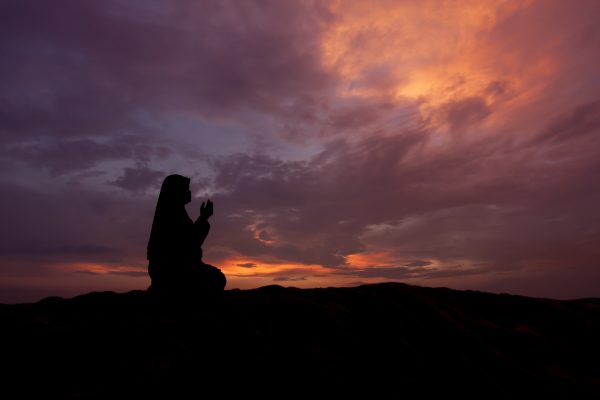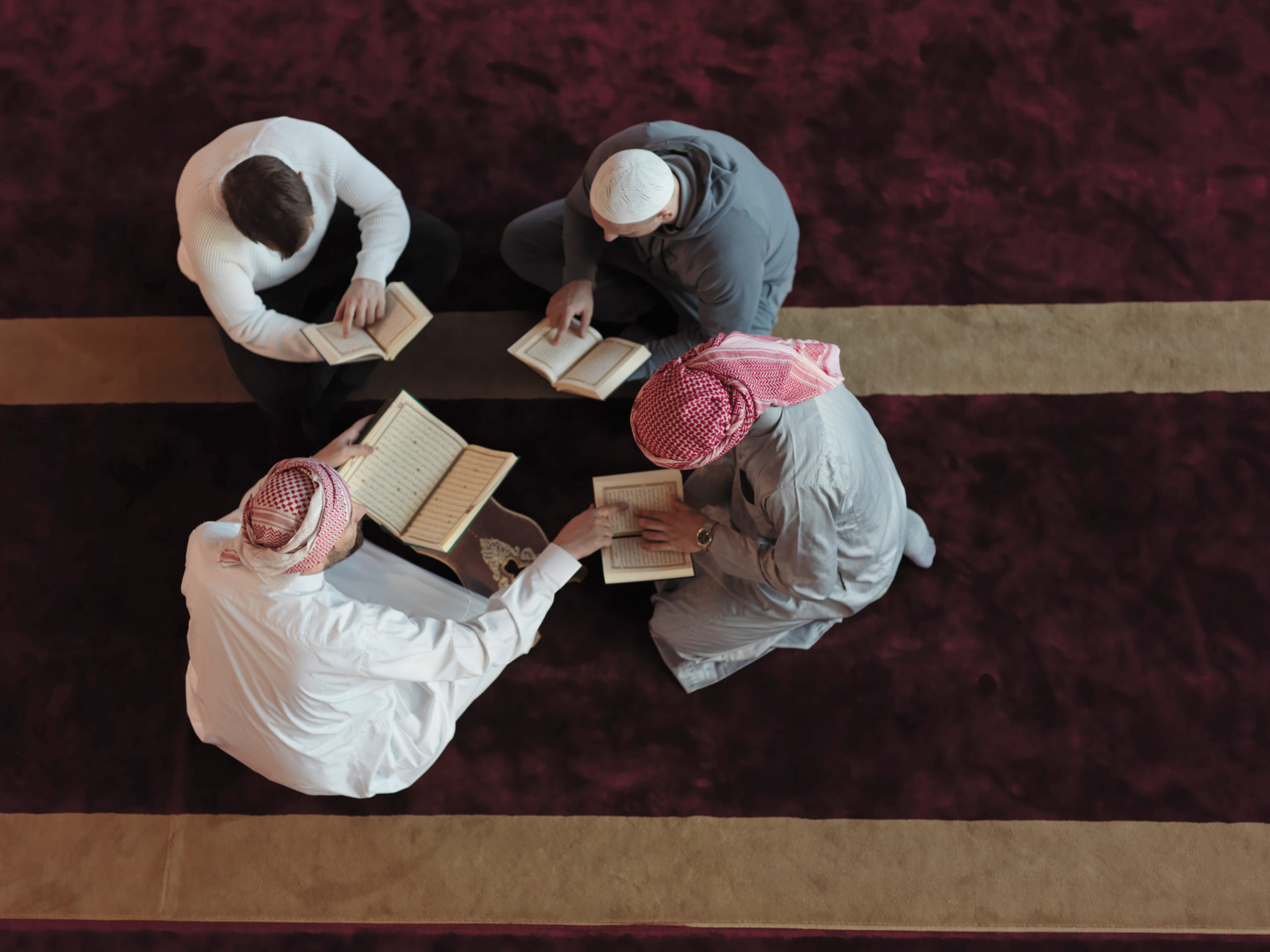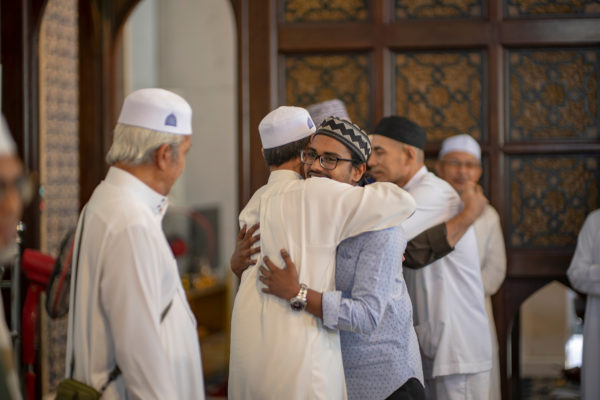I didn’t know I could fall into the label of being a “sushi” child until last year. Growing up, I thought it was normal to be just as much at ease with both our family friends who were Sunni as the ones who were Shia. In fact, I wasn’t even fully cognizant of these differences. The fact that some of my friends prayed with their arms folded versus my friends who prayed with their arms unfolded never fazed me. Maybe it was my own shallow self-unawareness, or maybe it was the benefit of growing up in a household where my mother, who came from a Sunni background, raised my brother and me within the Shia school of thought out of her love and reverence for my father.
Perhaps being a “sushi” child puts me in the boat of having an identity crisis, but it serves as a blessing…this exposure to two different sides gives the opportunity to build a platform on which having respect for another comes easily.
I’ve always told my friends as a joke, “I’m too Sunni for my Shia friends and I’m too Shia for my Sunni friends.” The fact that sometimes I might prefer separating my five prayers makes me too Sunni, whereas when I combine my prayers in those small windows of time before I have to rush off to class makes me too Shia. Cringing at “BULB” jokes on my Twitter timeline makes me too Sunni, defending those who say Shias are disbelievers makes me way too Shia.Maybe, it was the countless conversations I grew up listening to every evening, that still happens when my family sits down for chai: discussions of political differences, debates about whether cursing the enemies of the Ahlul-Bayt is conducive to actually building faith, and how every conversation always ends with my mother saying, “In the end, we all go into our own graves, so who are we to judge each other?” Being immersed in an environment of what some may argue are contradictions, helped me approach the concept of faith with a different point of view than most. In an era where sectarian genocide goes majorly unnoticed and sectarian humor dominates social media, biases against different schools of thought are detrimental to this concept of “one ummah” that so many Muslims continuously echo.
Stereotypes reign about either sect, and I cannot emphasize enough how every individual needs to reach out and properly educate oneself about each school of thought.
My mom’s father passed away during his first visit to see our family in America; I was in grade school at the time, and the first wave of bias hit me when someone at our masjid said that our community shouldn’t read Al-Fatiha for my grandfather, as he was Sunni. Another wave hit me after I returned from my ziyarat trip two years ago. To our family friends who identify with the Sunni school of thought and who weren’t used to blatant displays of my Shia background, that trip was too much of an extreme confirmation of my “Shia” identity. Behaviors changed, and when I started attending college, the outward displays of prejudices became even more evident. Looks at my turbah in the prayer room on campus are still a norm, and hushed comments at iftaar dinners consist of “She’s not going to break her fast right now, she’s Shia.” On the other hand, after discovering that I do indeed come from a mixed background, many in the Shia community render me not “pure” enough, on top of already not being “syed” enough.
Stereotypes reign about either sect, and I cannot emphasize enough how every individual needs to reach out and properly educate oneself about each school of thought. Read proper scholarly books from each side, ask questions, and be conscious of any presumptions that may be present in the material you engage with. Delve into Islamic history; do research on the major characters involved in its development. Do not reduce your imaginary representation of a school of thought to what is seen on media, or even to what you were raised to believe. Older generations are great, but as youth, we need to ensure the elimination of any biases that are passed down instead of perpetuating them. In order to eliminate them, we need to be aware of them. There’s a distinct harsh reality of how easy it is for most of us to pass fleeting comments filled with either purposeful or unconscious prejudice that we have been immersed in as part of our environment and childhood upbringing.
We are brothers and sisters within a beautiful religion; at the essence, we truly do make up one ummah… it’s time we start acting like it.
It’s interesting, how when most people describe a fellow Muslim, we first identify their sect. A friend called my mother the other day, collecting donations to send for a cancer patient’s treatment in Pakistan. “She’s Sunni,” she described. That single phrase, the usage of that clause, what was it supposed to imply? Was explicitly stating her sect necessary information that she expected would affect the act of donating, or even the amount? This extends to not only Shias and Sunnis, but even Ahmadi or Sufi communities. Identifying with a certain school of thought isn’t a problem, but discriminating against your brothers and sisters in faith because of differing opinions, is.
Perhaps being a “sushi” child puts me in the boat of having an identity crisis, but it serves as a blessing. To some, I could be a polluted child of confusion, a lost soul whose open-mindedness will serve as her spiritual demise. But this exposure to two different sides gives the opportunity to build a platform on which having respect for another comes easily. Interacting with someone from a different school of thought should come easily; one should not have to think twice. It’s not “interfaith” when a line of prayer is filled with both Sunnis and Shias, it’s unity. We are not different faiths, we are not enemies. We are brothers and sisters within a beautiful religion; at the essence, we truly do make up one ummah, and in a time where perpetuating hatred is on the political agenda of the enemies of Islam, it’s time we start acting like it.





